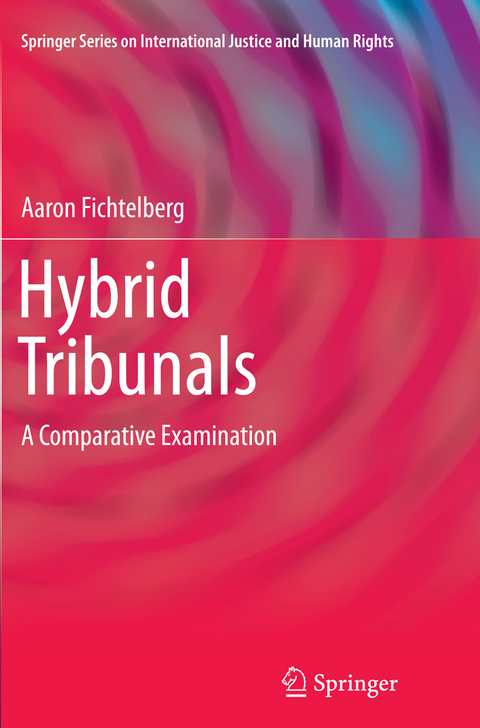
Hybrid Tribunals
Springer-Verlag New York Inc.
978-1-4939-5337-0 (ISBN)
Hybrid tribunals are a form of the international justice where the judicial responsibility is shared between the international community and the local state where they function. These tribunals represent an important bridge between traditional international courts like the International Criminal Court (ICC), the International Criminal Tribunal for the Former Yugoslavia (ICTY), the International Criminal Tribunal for Rwanda (ICTR) and various local justice systems. Because hybrid tribunals are developed in response to large-scale atrocities, these courts are properly considered part of the international criminal justice system. This feature gives hybrid tribunals the accountability and legitimacy often lost in local justice systems; however, by including regional courtroom procedures and personnel, they are integrated into the local justice system in a way that allows a society to deal with its criminals on its own terms, at least in part.
This unique volume combines historical and legal analyses of these hybrid tribunals, placing them within a larger historical, political, and legal context. It will be of interest to researchers in Criminal Justice, International Studies, International Law, and related fields.
Aaron Fichtelberg is an Associate Professor in the Department of Sociology and Criminal Justice at the University of Delaware. He has PhD from Emory University, an MA from Depaul University, and an LLM Degree from Utrecht University. Along with this book, he is the author of Law at the Vanishing Point: A Philosophical Analysis of International Law and Crime Without Borders: An Introduction to Criminal Justice. He lives in Wilmington, Delaware with his wife and two sons.
Introduction: Hybrid Tribunals in International Justice.- I: Forming the Hybrid Tribunals.- Sierra Leone: Civil War and Justice.- Kosovo: International and Hybrid Justice.- Cambodia: Justice (long) After the Fact.- East Timor: Genocide and Colonialism.- Lebanon: Assassination of Rafic Hariri and Global Justice.- II: Structuring the Tribunals.- Sierra Leone.- Kosovo.- Cambodia.- East Timor.- Lebanon.- III: The Tribunals in Action.- Sierra Leone: Taylor and “The Other”.- Cambodia and Lebanon: Fighting for Independence.- Kosovo and East Timor: Working in the UN System.- IV: Conclusions: Evaluating the Tribunals.- Hybrid Tribunals and Local Justice.- Hybrid Tribunals and International Justice Revisited.- Guidelines for Future Tribunals.
| Erscheinungsdatum | 31.10.2016 |
|---|---|
| Reihe/Serie | Springer Series on International Justice and Human Rights |
| Zusatzinfo | XVIII, 206 p. |
| Verlagsort | New York |
| Sprache | englisch |
| Maße | 155 x 235 mm |
| Themenwelt | Recht / Steuern ► EU / Internationales Recht |
| Recht / Steuern ► Strafrecht ► Kriminologie | |
| Sozialwissenschaften ► Politik / Verwaltung ► Politische Theorie | |
| Schlagworte | civil war Sierra Leone • genocide East Timor • hybrid tribunals • International Criminal Justice • international criminal law • Transitional Justice |
| ISBN-10 | 1-4939-5337-0 / 1493953370 |
| ISBN-13 | 978-1-4939-5337-0 / 9781493953370 |
| Zustand | Neuware |
| Haben Sie eine Frage zum Produkt? |
aus dem Bereich


